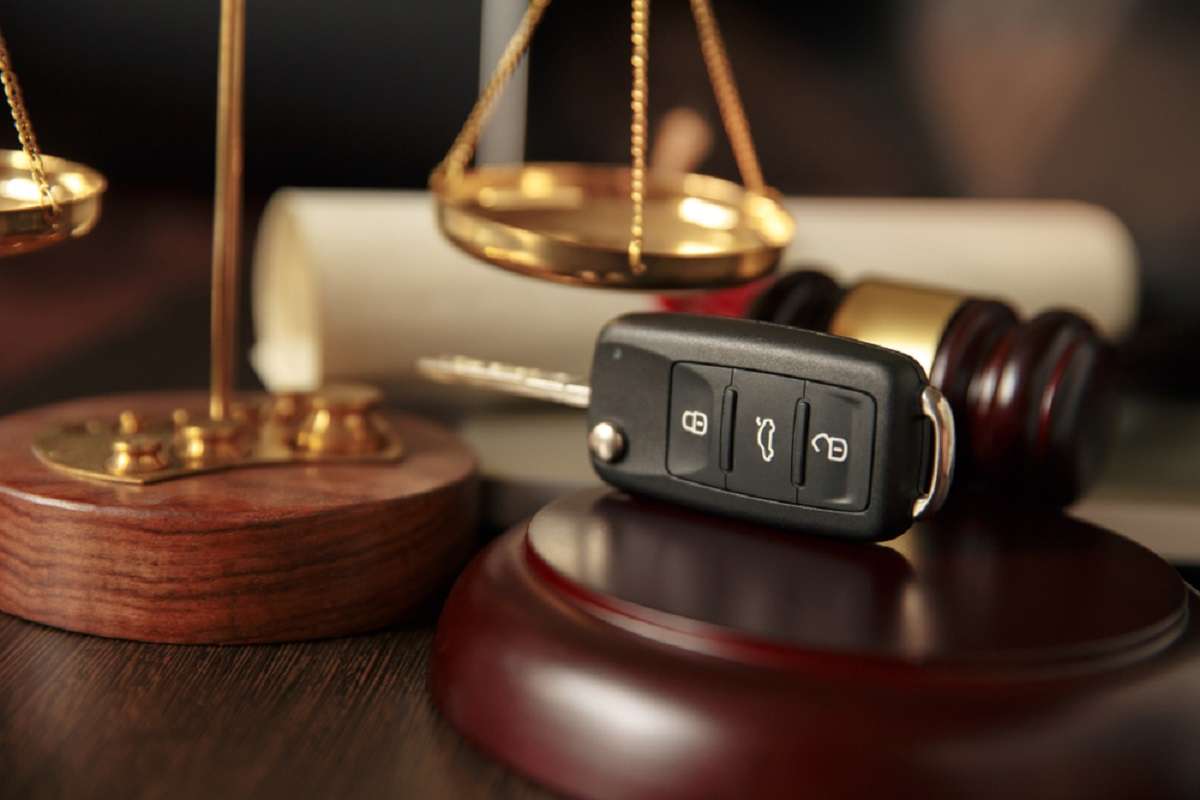If you’ve recently heard about Bridges DUI programs, you might be wondering what they are and how they apply to your situation. You’re not alone. Many individuals facing DUI charges feel confused when introduced to specialized courts or treatment alternatives like these programs. The good news? This guide will walk you through everything you need to know.
We’ll break down how these programs operate, what sets them apart from traditional DUI processes, who qualifies, and what happens if you’re assigned to one. Along the way, we’ll share real-life experiences that illustrate both the challenges and the opportunities involved.

What Is Bridges DUI?
Bridges DUI refers to a specialized court program that focuses on rehabilitation rather than strict punishment for individuals convicted of driving under the influence. These programs often target repeat offenders or those dealing with substance dependency, offering intensive treatment options as an alternative to jail time.
The name “Bridges” symbolizes providing a pathway to recovery while ensuring offenders remain accountable for their actions. Instead of simply imposing fines or incarceration, these programs aim to reduce repeat offenses by addressing the root causes of impaired driving through structured support and ongoing monitoring.
Real-Life Story: Jennifer’s Path to Sobriety
Jennifer, a 36-year-old mother, found herself arrested for her second DUI within two years. Rather than sending her directly to jail, the judge offered her a chance to participate in the Bridges program. Over 18 months, Jennifer committed to weekly counseling, underwent random testing, and attended frequent court check-ins. This structure helped her achieve lasting sobriety and avoid a felony on her record.
Why Do Bridges DUI Programs Exist?
To understand Bridges DUI offenses, you need to see why these programs were created in the first place. Traditional criminal courts often fail to address underlying addiction issues that fuel repeat DUI behavior. Simply locking people up doesn’t necessarily prevent them from drinking and driving again once released.
Bridges DUI programs exist to:
- Reduce repeat DUI offenses.
- Treat underlying alcohol or drug dependency.
- Protect public safety while rehabilitating offenders.
- Save taxpayer dollars compared to incarceration costs.
Studies consistently show that specialized DUI courts like Bridges reduce recidivism rates and promote long-term sobriety much more effectively than standard sentencing.
How Does a Bridges DUI Program Work?
If you’re facing Bridges DUI offenses, here’s what you can typically expect:
Initial Screening
You’ll be assessed to determine if you qualify for the program. Factors include:
- Number of prior DUI offenses.
- Substance abuse history.
- Risk of reoffending.
- Willingness to comply with intensive supervision.
Customized Treatment Plan
Once admitted, a treatment team creates a plan tailored to your needs, which may include:
- Weekly counseling sessions.
- Group therapy.
- Educational classes.
- Mental health treatment (if applicable).
- Regular drug and alcohol testing.

Court Supervision
You’ll appear regularly before the same judge who oversees your progress. The judge reviews reports from your treatment team, monitors compliance, and issues incentives or sanctions based on your performance.
Phases of Treatment
Bridges DUI programs often include several phases:
- Stabilization: Addressing immediate substance abuse issues.
- Treatment and Accountability: Intensive therapy and strict supervision.
- Transition: Preparing for independent sobriety.
- Graduation: Successfully completing the program.
Real-Life Story: Mike’s Road to Recovery
Mike, a 42-year-old firefighter, was arrested for a third DUI after struggling silently with alcohol dependency. Instead of sending him to prison, the judge offered him admission to the Bridges DUI program. Over two years, Mike completed inpatient treatment, reconnected with his family, and ultimately became a peer mentor for new program participants. Today, he credits Bridges DUI with saving his career—and his life.
Key Differences Between Bridges DUI Offenses and Standard DUI Charges
Many people assume a DUI is simply a DUI, but Bridges DUI offenses operate very differently compared to the traditional court process. In standard DUI cases, defendants typically attend brief court appearances that focus on punishment—through jail time, probation, or fines—followed by minimal supervision after sentencing. These standard approaches are largely punishment-centered and often result in higher recidivism rates because the underlying issues driving the behavior remain unaddressed.
In contrast, Bridges DUI offenses involve frequent, in-depth court reviews with a judge who monitors each participant’s progress closely. Instead of standard sentencing, these programs offer customized treatment plans that combine therapy, counseling, and continuous supervision. The primary focus is rehabilitation, not punishment, with ongoing accountability and strong support systems aimed at helping individuals achieve long-term sobriety. This difference is why Bridges DUI programs often report much lower rates of repeat offenses, making them a powerful alternative for those struggling with substance abuse.
Who Qualifies for Bridges DUI Programs?
Eligibility for Bridges DUI offenses varies by jurisdiction but generally includes:
- Multiple prior DUI convictions.
- Demonstrated alcohol or drug dependency.
- Willingness to comply with rigorous program requirements.
- No serious violent criminal history.
- Assessment confirming suitability for intensive treatment.
Not every DUI offender is eligible. However, for those struggling with substance abuse, a Bridges DUI program can be a life-changing opportunity.
Common Misconceptions About Bridges DUI Offenses
Let’s address a few widespread myths about Bridges DUI offenses:
Myth #1: It’s an easier way out.
Not true. Bridges DUI programs are extremely demanding. You’ll be monitored closely, tested regularly, and held accountable for every misstep.
Myth #2: You have to be an alcoholic to qualify.
False. While many participants struggle with addiction, Bridges DUI courts accept people at various levels of substance misuse if treatment is deemed appropriate.
Myth #3: Failure automatically means jail.
While sanctions may apply for noncompliance, the goal is always to redirect participants back into treatment whenever possible.
Real-Life Story: Sarah’s Turning Point
Sarah entered the Bridges DUI program after her second offense. She initially struggled and missed several counseling sessions, nearly earning jail time. But with her team’s support, she recommitted and completed the program. She later said, “Bridges DUI wasn’t easy, but it gave me the structure I needed when I couldn’t control my drinking.”
The Legal Consequences of Bridges DUI Offenses
Even though Bridges DUI offenses emphasize treatment, make no mistake: legal consequences remain. Participants typically face:
- License suspensions.
- Fines and court costs.
- Installation of ignition interlock devices.
- Possible jail time for violations or serious noncompliance.
- Mandatory participation in treatment programs.

However, those who complete Bridges DUI programs successfully often avoid extended incarceration and leave court with far fewer long-term consequences than traditional sentencing would have imposed.
Benefits of Participating in Bridges DUI Programs
Successfully completing a Bridges DUI offense program offers significant advantages:
- Avoiding or reducing jail time.
- Retaining employment and family connections.
- Receiving comprehensive treatment for underlying addiction.
- Lower long-term recidivism risk.
- Opportunity to rebuild your reputation and life.
For many, the most valuable benefit is the personal transformation that results from long-term sobriety.
How Long Does Bridges DUI Last?
The length of a Bridges DUI offense program depends on the severity of the offense and individual progress, but most programs last between 12 and 36 months. This extended period allows participants to build sustainable recovery habits under strict supervision.
Real-Life Story: Tom’s Three-Year Journey
Tom entered the Bridges DUI program after his third DUI arrest. His program lasted 36 months, involving inpatient rehab, weekly court reviews, counseling, and community service. He successfully graduated and remains sober today. Tom’s story illustrates that lasting recovery takes time—and Bridges DUI provides the structure to support that journey.
What Happens If You Fail Bridges DUI?
Not everyone succeeds immediately in a Bridges DUI offense program. Consequences for noncompliance may include:
- Increased supervision.
- Temporary incarceration.
- Restarting program phases.
- Ultimately being removed from the program and sentenced under traditional guidelines.
However, most Bridges DUI courts emphasize rehabilitation and offer multiple chances to correct behavior before issuing harsher penalties.
Real-Life Story: Kevin’s Warning Shot
Kevin repeatedly skipped therapy sessions and failed alcohol tests during his first year in Bridges DUI. The judge gave him a stark choice: immediate 90-day jail sentence or recommit fully to the program. Kevin chose to refocus, completed treatment, and graduated successfully.
The Role of Family and Community Support
Family plays a huge role in the success of participants in Bridges DUI offenses. Supportive spouses, parents, and friends help reinforce accountability, reduce isolation, and celebrate milestones in recovery.
Many programs also utilize peer mentors—graduates who’ve successfully completed Bridges DUI—to guide newer participants through challenges they once faced themselves.
Bridges DUI vs. Ignition Interlock Requirements
One common feature across many Bridges DUI offenses is mandatory installation of ignition interlock devices (IID). These devices prevent vehicles from starting if alcohol is detected on the driver’s breath.
Even after completing Bridges DUI, participants may be required to maintain IID compliance for months or years as part of their probation or license reinstatement terms.
Financial Costs Involved
Although these programs may help participants avoid jail, they aren’t free. Common expenses include:
- Program participation fees.
- Therapy and treatment costs.
- Regular drug and alcohol testing.
- Court administrative fees.
- Ignition interlock installation and maintenance.

Despite these costs, many participants consider the investment worthwhile given the alternative of incarceration and the opportunity for long-term sobriety.
Final Thoughts: Building a Bridge to a Better Future
When first learning about Bridges DUI programs, many feel overwhelmed or intimidated. But for those who embrace the structure and support, these programs offer one of the most compassionate, effective alternatives in the justice system. Rather than simply punishing offenders, they provide the tools necessary for real, lasting change.
For anyone facing multiple DUI charges, Bridges DUI represents not only a chance to avoid harsher legal consequences but a true opportunity to reclaim control over one’s future.


